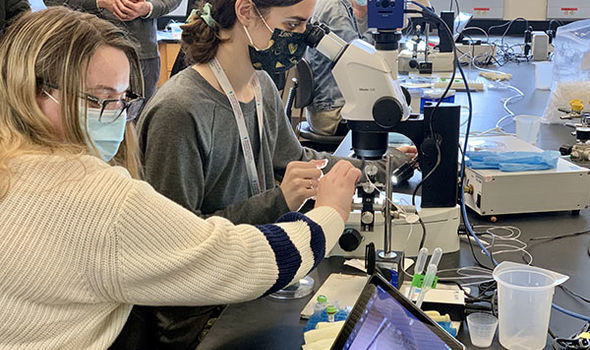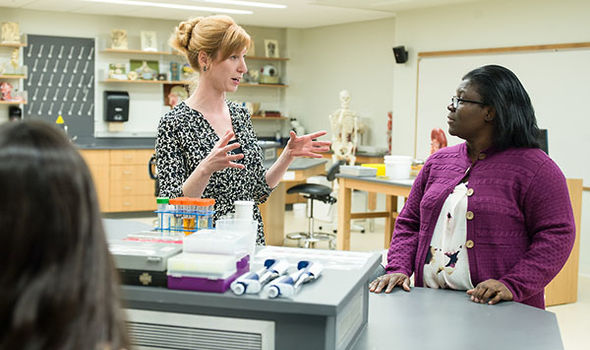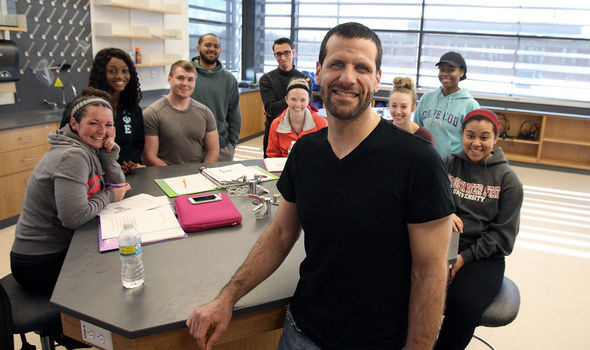Evolve Your Career: Earn Your Master’s in Biology
Housed in our Biological Sciences Department, the biology master’s program at Bridgewater State University is your pathway to increasing your expertise in ecological, environmental, cellular or molecular biological sciences. Enroll in BSU’s program knowing a master’s degree in biology from BSU will fine tune your critical thinking and technical skills. If you’ve already started your career, our biology graduate program will deepen your understanding of biological sciences and expose you to emerging research.
Students earn their biology MS degrees in as little as two years with the guidance of accomplished faculty. You will learn in intimate classroom and lab settings, allowing you to get the attention you need to advance in your career or pursue further graduate studies.






